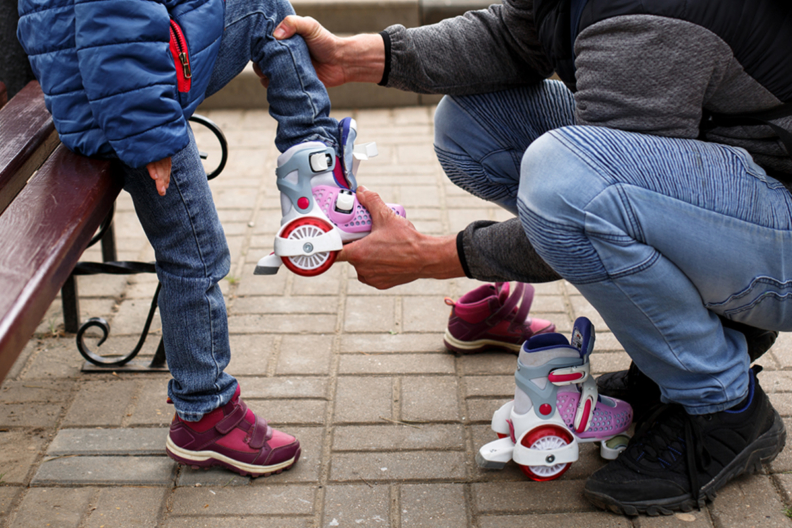Column: Constitutional Limits on Congressional Investigations Into Palestine-Israel Advocacy
Civil Liberties Union
Our state's harsh sentencing laws are destroying communities. They must be changed.

Father’s Day was a somber occasion for thousands of New York children because their dads are locked away.
Many dads are serving long sentences because of New York’s draconian sentencing scheme that requires judges to hand down lengthy terms. Judges hands are tied, even if rehabilitation, a non-carceral alternative, or a shorter sentence would be in the best interest of the community. Imposing harsh sentences does not improve community safety, but it does significantly increase the likelihood that their children will live in long-term poverty.
It is past time for New York’s legislature to pass a slate of common sense bills that will strengthen families, and invest in true community safety.
Having an incarcerated parent causes children to struggle in school. It makes children much more likely to suffer from depression and post-traumatic stress disorder, and it increases the likelihood that children will live in poverty. The devastating effects of parental incarceration are compounded by the fact that their children overwhelmingly come from resource-starved, low-income communities.
The length of sentences rapidly began rising in New York 50 years ago with the passage of the Rockefeller Drug Laws. Through the 1990’s, the state siphoned funds from programs and services designed to help the most marginalized New Yorkers, and used that money to cage more people in prisons for longer terms. At the same time, the state defunded prison education and work programs that would give incarcerated people skills to aid their re-entry. But our state heavily invests in maintaining its system of mass incarceration: New York spends $82,000 per year to incarcerate just one person.
Today, there are over 31,000 people incarcerated in New York, and 60 percent of them are parents. Children with incarcerated parents are six times more likely to be incarcerated in their lifetimes, compared to their peers. Punishing parents with long sentences makes their children and their communities less safe.
We know that these sentences do not deter crime or enhance community safety. Prisons and jails are notoriously dangerous, and warehousing people does not rehabilitate them. Plus, prison sentences do not address the root causes of crime. The safest communities are the ones with the most resources, not the highest jail populations.
We’ve caged tens of thousands of parents over decades, causing pain, poverty, and multigenerational cycles of incarceration. A bold and compassionate suite of sentencing reform bills could change that. The Communities Not Cages legislation would eliminate mandatory minimum sentences in New York, and enable judges to consider non-carceral, rehabilitative alternatives.
The reforms would also allow those sentenced under New York’s draconian sentencing laws to apply for resentencing, and enable incarcerated New Yorkers to earn time off of their sentences for participating in treatment, work programs, and educational programming.
Other legislation in Albany would do even more to help young people ensnared by the criminal legal system. The Youth Justice and Opportunities Act would let judges consider less harsh, non-carceral, rehabilitative sentences for young people up to age 25, many of whom are parents. It also builds on recently passed Clean Slate legislation, which allows for convictions to be sealed after a certain number of years. The Youth Justice and Opportunities Act would give judges the option of replacing criminal convictions with judgments that are immediately sealed.
Criminal convictions have a clear negative impact on people’s futures and the well-being of their families. They prevent people from accessing employment, education, housing, government benefits, and numerous other critical aspects life. Passing the Youth Justice and Opportunities Act will help young people by eliminating many of the obstacles created by criminal records.
New York’s half-century long scourge of mass incarceration and unduly harsh sentences are policy choices that continue to ravage entire communities, individual families, and thousands of children. New York would be safer if more children saw their dads on Father’s Day. Doing so only requires Albany to have the political will to shift resources from prisons to investments in low-income communities.